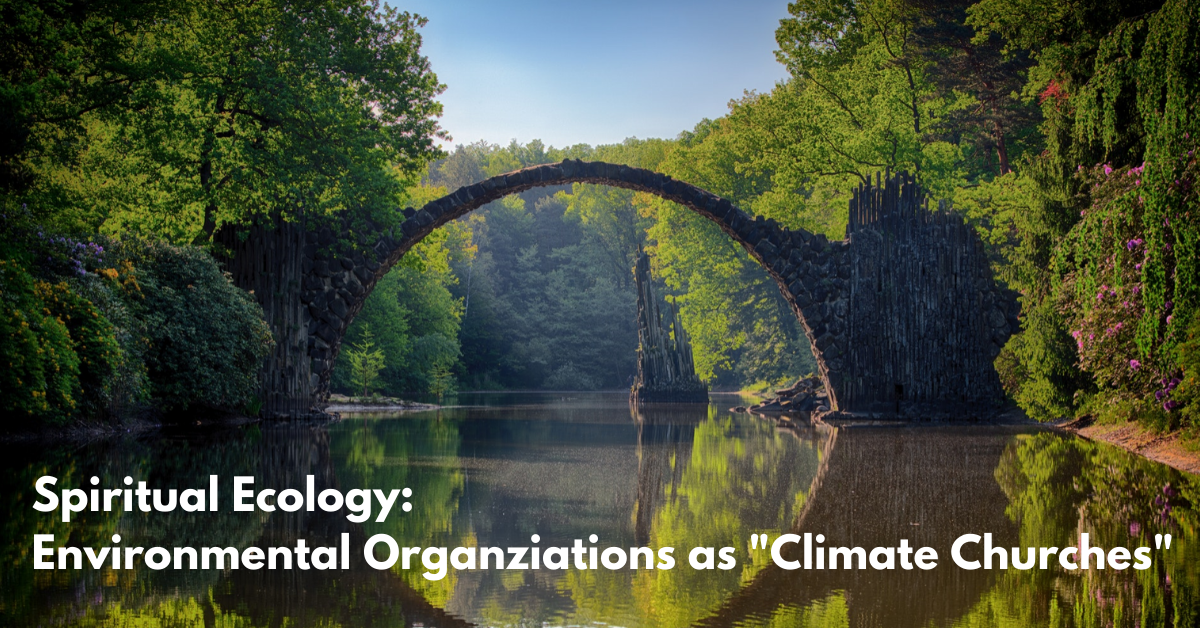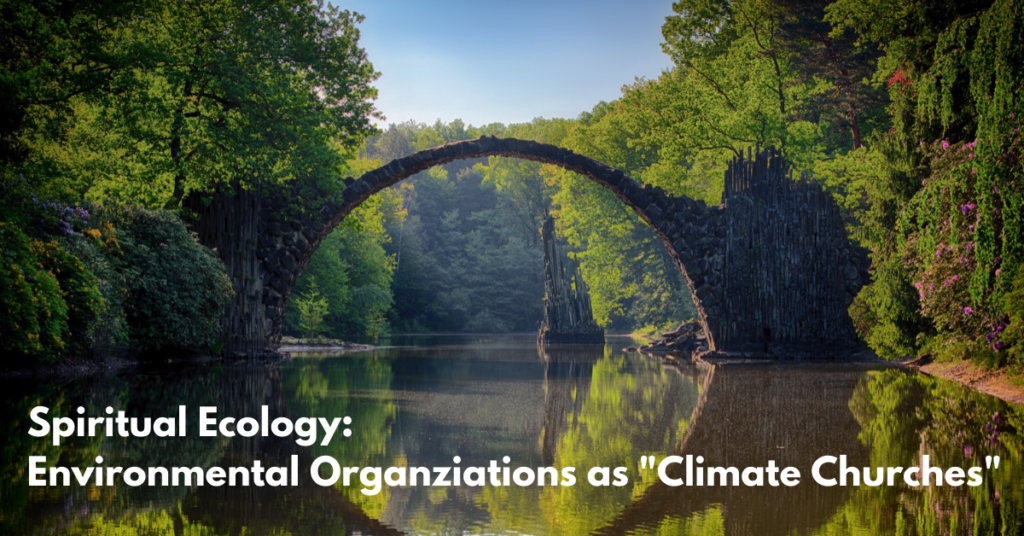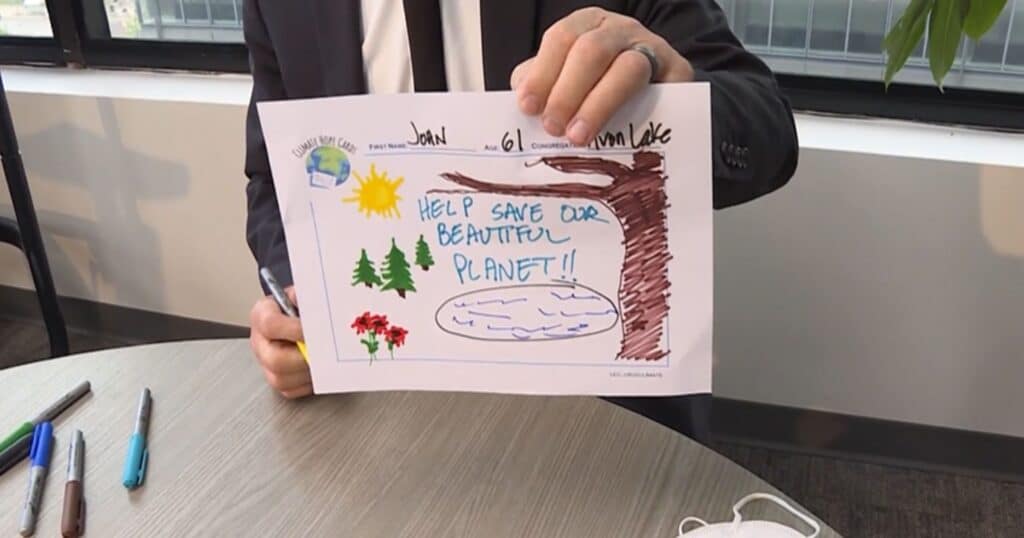Spiritual Ecology: Environmental Organizations as “Climate Churches”

For several years, I have viewed environmental organizations as spiritual communities, whose spiritual practice is environmental activity and/or Earthcare. I have listened to webinar presenters from environmental groups, and I have found deep faith commitments comparable to my own which were nurtured in a hybrid Buddhist Christian spirituality. When I have suggested to interfaith groups that we might include environmental activists at the table, they have rejected such proposals. What I propose here is an inclusive shift in our thinking about spirituality in striving for a new ecumenism.
Anthropologist Leslie Sponsel uses “spiritual ecology” to recognize the interweaving of nature and spirituality. “Spiritual ecology” refers to “the diverse, complex, and dynamic arena of intellectual and practical activities at the interface between religions and spiritualities on the one hand, and, on the other, ecologies, environments, and environmentalism.” Spiritual ecology allows for an inclusion of open-ended, non-modern notions of ecology from indigenous peoples as well as scientific and theological knowledge of nature. This allows for respect of peoples’ wisdom who lived with the land for generations as well as scientific understandings of the Earth. It may preclude clergy dismissing the spirituality of environmentalists or environmental scientists or anthropologists rejecting indigenous people as the “first ecologists.”
Spiritual ecology is inclusive of religiously motivated environmentalism and environmentally motivated spirituality. Spirituality is a more inclusive description than religion, for many outside of institutional religion, who describe themselves, as “spiritual but not religious.” Spiritual ecology allows for a middle ground where religious folks, whose spiritual practices lead to environmental action, meet fellow travelers, whose environmental work fosters a spirituality in nature. As I listen to the stories of environmentalists, I hear comparable stories of faith gestalt, albeit different and simultaneously similar to people of faith. There is a common ground of shared environmental action and spiritual practice. I flashback to similar discoveries as I engaged in the Christian-Buddhist dialogue and shared practices years ago.
Spiritual ecology becomes an integral framework for all those people who do not conceive of spirituality as separate from nature but instead as interwoven into an organic natural unity. There are variety of paths to that common middle space of ecological spirituality, and it has allowed me to identify environmental organizations as “climate churches” and environmental spiritualities as sharing ecological spiritual practices. Are environmental communities the post-modern church of the 21st century? If so, then we need to engage in a new ecumenism of Earth spiritualities. This would recognize how the Spirit draws together networks of peoples, environmental and spiritual, indigenous and non-indigenous to defend the Earth. The North American indigenous prophecy that multi-ethnic “Warriors of the Rainbow” will arise up “to make the Earth green again” gives me hope that indigenous and non-indigenous peoples will form the Warriors of the Rainbow to protect and heal the Earth. Maybe we can a step forward in expanding the paradigm of spiritual ecology as a new ecumenism.
Related News
The UCC’s 2025 Climate Hope Art Contest
Register your church now! For the third straight year, the UCC is conducting a...
Read MoreFinding Faith in Cancer Alley
Cancer Alley is the nickname given to 80 miles of the Mississippi between Baton Rouge and New...
Read MoreCall to Address Environmental Racism in Alabama Community
For six years, the Shiloh community of Elba, Alabama has faced severe flooding caused by the...
Read More


